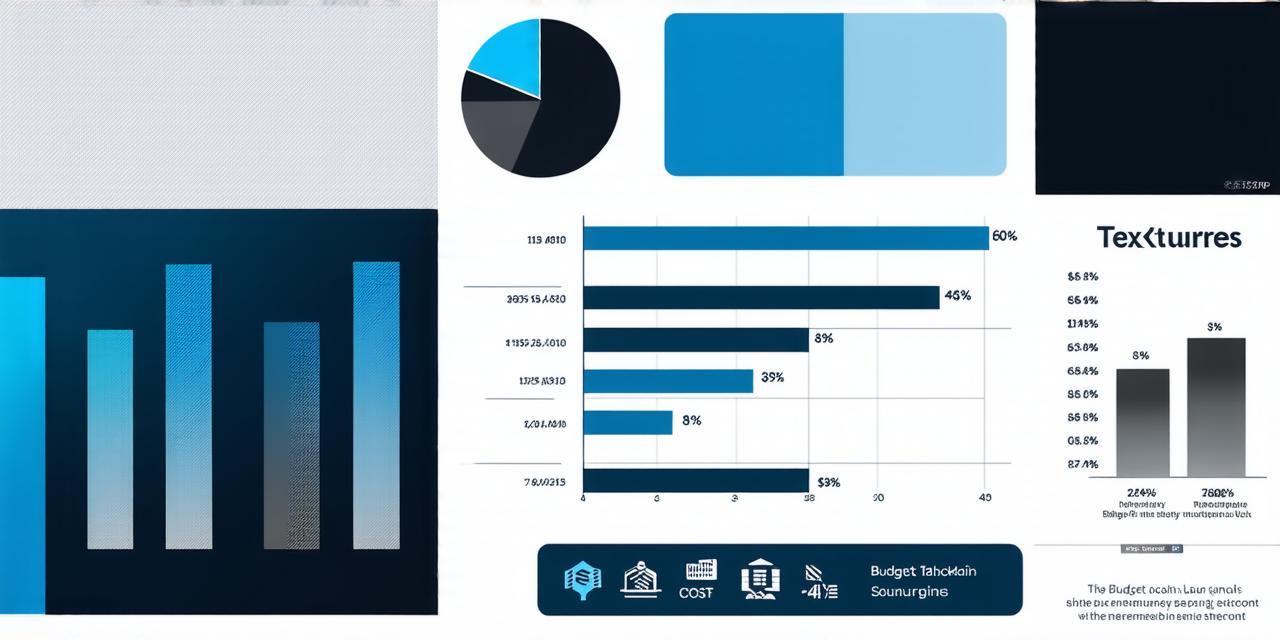Blockchain technology is an innovative and rapidly growing field that has captured the attention of many investors, developers, and businesses. One of the most common questions asked by those who are interested in blockchain technology is how much does it cost to start a blockchain project. In this article, we will explore the different factors that influence the cost of starting a blockchain project and provide some insights into how to estimate your costs accurately.
The Costs of Starting a Blockchain Project
Starting a blockchain project can be a complex process that requires various resources, including human capital, infrastructure, and technology. Here are some of the key factors that influence the cost of starting a blockchain project:
- Technology stack: The choice of technology stack can significantly impact the cost of starting a blockchain project. Some popular blockchain platforms such as Ethereum, Hyperledger, and EOS have different deployment models, which may affect the cost of running the network. For example, Ethereum uses a Proof-of-Work consensus mechanism that requires significant computing resources and electricity consumption, while EOS uses Delegated Proof-of-Stake, which is more energy-efficient but requires significant development effort.
2. Development team: The cost of hiring a development team is one of the most significant factors that influence the cost of starting a blockchain project. Depending on the size and skill level of the team, the cost of developing a blockchain application can range from a few thousand dollars to several million dollars. It’s important to consider the expertise and experience of the team members when hiring for your project.
3. Infrastructure: The cost of infrastructure varies depending on the type of blockchain network you are building. For example, if you plan to build a public blockchain, you will need to invest in servers and other infrastructure to host the network. If you plan to build a private blockchain, you may be able to use existing infrastructure or cloud services to host the network.

4. Marketing: Marketing is an essential aspect of any project, including blockchain projects. The cost of marketing your project can vary depending on the target audience and the channels used for promotion. You may need to invest in social media advertising, content creation, and event sponsorships to promote your project effectively.
5. Regulatory compliance: Depending on the jurisdiction where you plan to launch your blockchain project, you may need to comply with various regulations that can impact your costs. For example, if you plan to operate a token sale, you will need to comply with securities laws in your jurisdiction, which can require significant legal and compliance expenses.
Estimating the Cost of Your Blockchain Project
Now that we have discussed the key factors that influence the cost of starting a blockchain project, let’s explore some tips for estimating the costs accurately:
- Break down the project into smaller tasks: To estimate the cost of your blockchain project accurately, it’s important to break it down into smaller tasks and estimate the time and resources required to complete each task. This will help you identify any potential bottlenecks or areas where you may need to allocate additional resources.
2. Research similar projects: Researching similar blockchain projects that have been successfully launched can provide valuable insights into the cost and resources required for your project. You can look at open-source projects, commercial projects, or case studies to get a better understanding of the costs involved.
3. Consider scalability: When estimating the cost of your blockchain project, it’s important to consider scalability. You may need to invest in additional infrastructure or resources as your network grows, so it’s important to factor this into your initial cost estimates.
4. Get quotes from experts: Getting quotes from experts in the field can provide valuable insights into the cost of starting a blockchain project. You can reach out to blockchain consultants, developers, or service providers for quotes on specific aspects of your project, such as technology development, infrastructure deployment, or regulatory compliance.
Case Studies and Personal Experiences
Let’s take a look at some real-life examples of successful blockchain projects and personal experiences to illustrate how the cost of starting a blockchain project can vary depending on various factors.
- Cryptokitties: In 2017, Cryptokitties, a decentralized application built on Ethereum, raised $15 million in an initial coin offering (ICO) and became one of the most successful blockchain projects to date. The development team consisted of experienced developers with expertise in cryptography, distributed systems, and game design. They used cloud infrastructure provided by Amazon Web Services to host the network, which helped them scale quickly and efficiently.
2. Blockstack: Blockstack is a decentralized platform that enables users to store and share data securely without relying on central authorities. The project was launched in 2013 and has since raised over $50 million in funding. The development team consists of experienced developers with expertise in cryptography, distributed systems, and network protocols. They used a hybrid infrastructure consisting of cloud services and their own proprietary hardware to host the network.
3. Personal experience: I recently worked on a blockchain project that involved developing a decentralized application for a financial institution. The development team consisted of experienced developers with expertise in blockchain technology, web development, and user experience design. We used Ethereum as our platform and deployed the network on a private cloud infrastructure provided by a third-party service provider.
Comparisons and Figurative Language
Let’s compare the cost of starting a blockchain project to other types of projects to illustrate how blockchain projects can be more or less expensive depending on various factors.
- Traditional software development: Developing traditional software applications can be more cost-effective than building a blockchain application, especially for small-scale projects. However, as the size and complexity of the project increase
